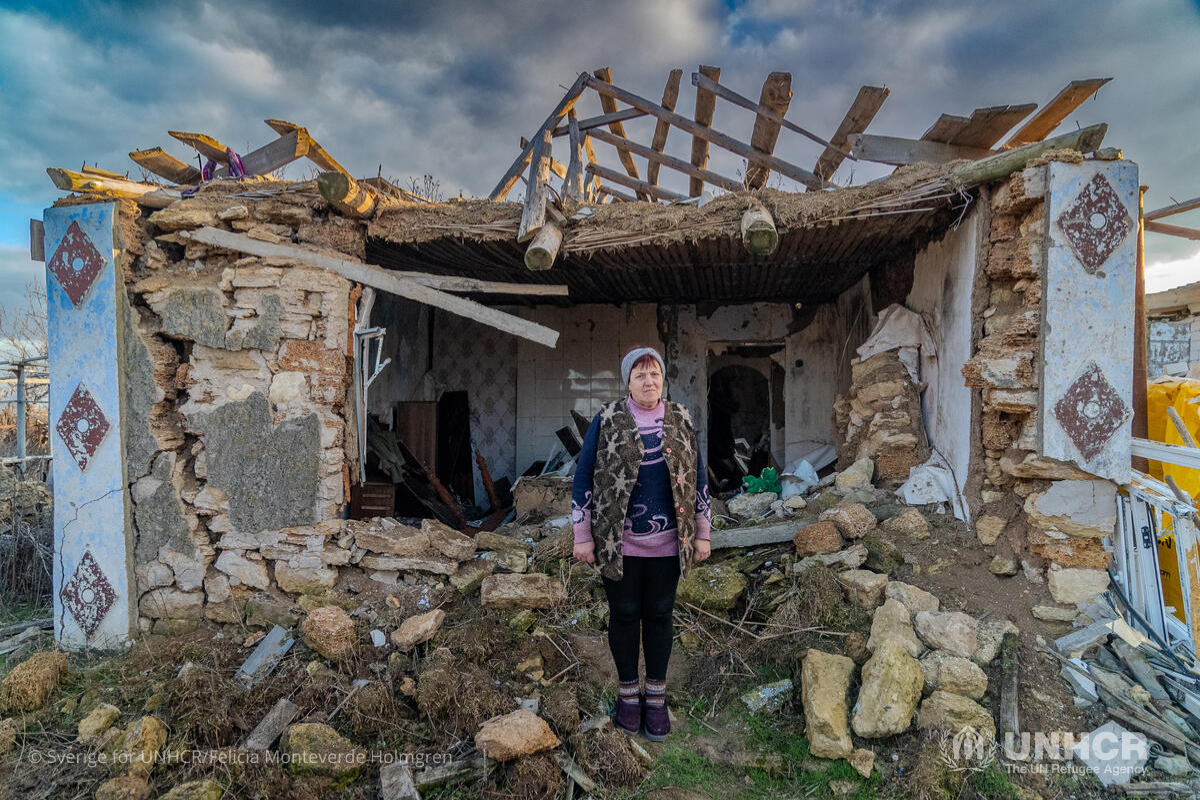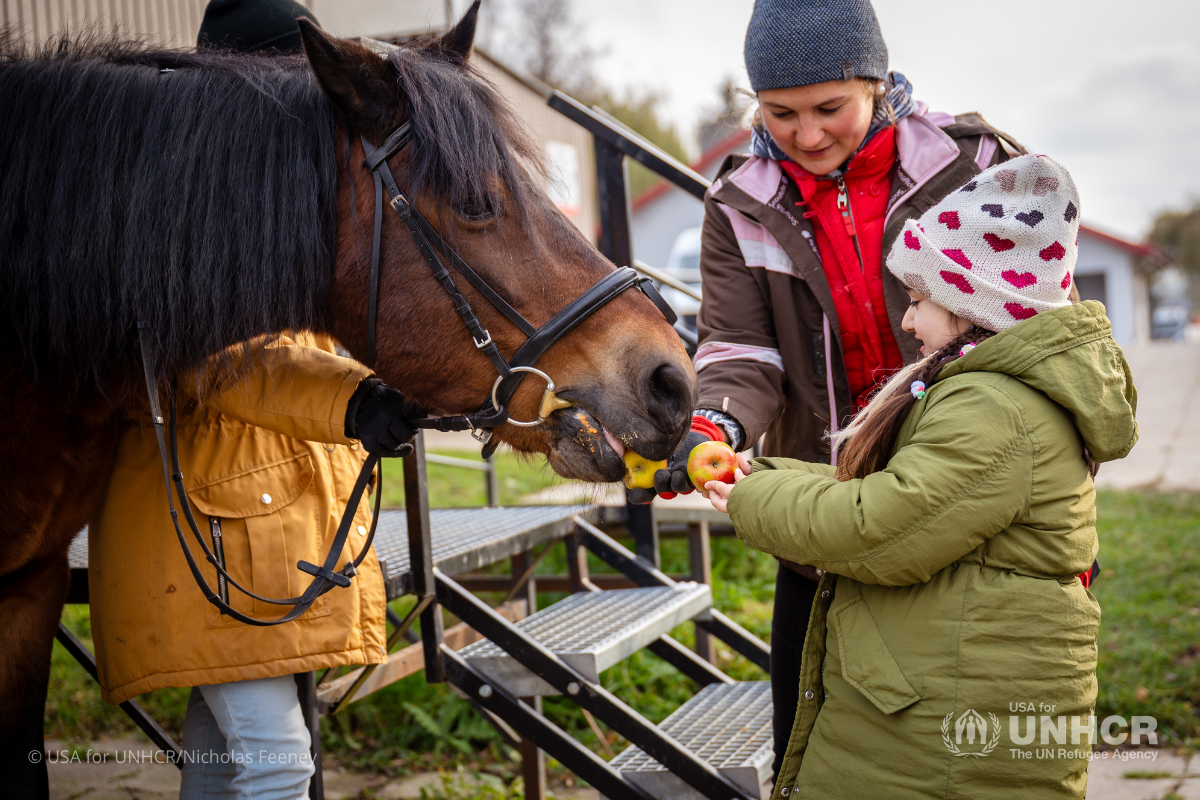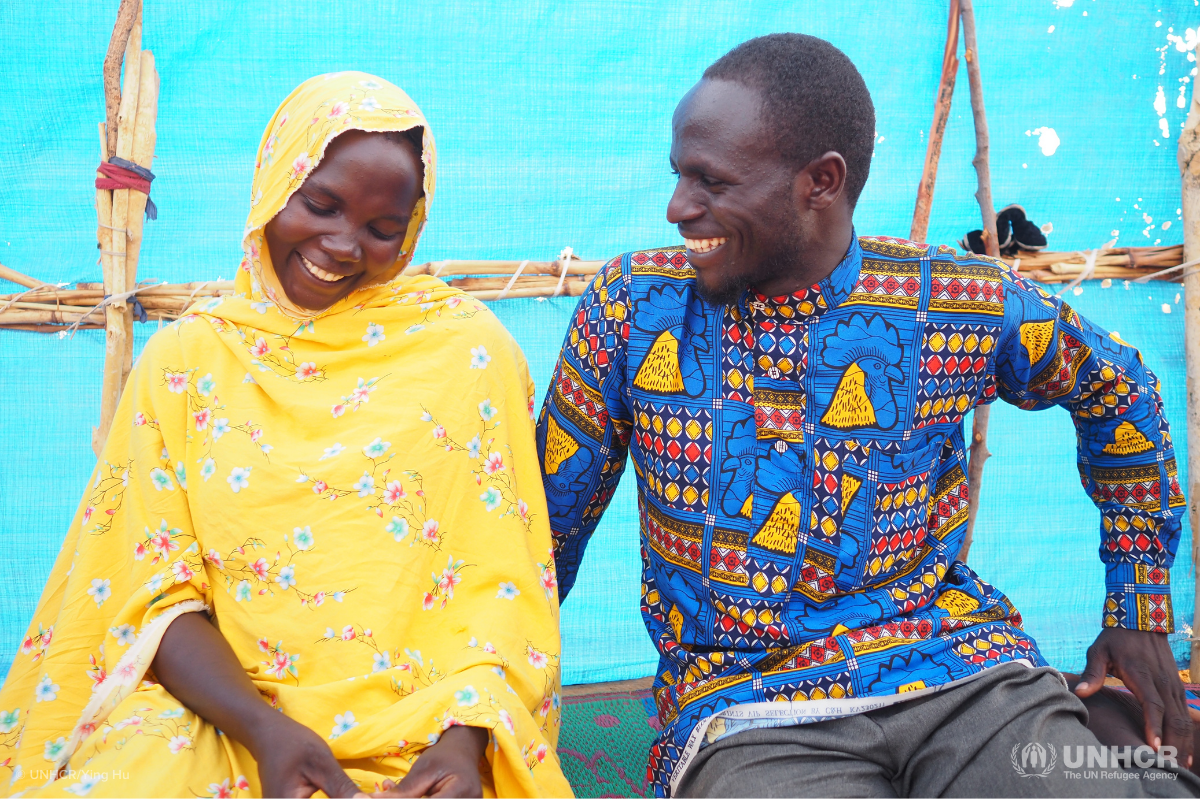UNHCR: After three years of war, Ukrainians need peace and aid

GENEVA - Three years on, the full-scale war on Ukraine has taken thousands of lives, caused untold destruction, torn families apart, inflicted significant psychological trauma and devastated the country’s economy and infrastructure.
In the last six months alone, more than 200,000 people have fled their homes in eastern Ukraine as attacks increased. As human suffering continues, providing immediate lifesaving assistance to those most affected as well as opportunities to recover is more needed than ever.
UNHCR, the UN Refugee Agency, estimates that 10.6 million Ukrainians are displaced – almost a quarter of its pre-war population. Inside Ukraine, 3.7 million have been uprooted, while 6.9 million refugees continue to receive protection abroad. More than 2 million homes across Ukraine – 10 percent of the housing stock – have been damaged or destroyed. Repeated attacks on energy infrastructure continue to plunge people into cold and darkness, while further disrupting strained local services. The newly displaced are increasingly vulnerable – older people and those living with disabilities – who often face additional challenges in accessing services they need the most.
Many of the most vulnerable continue to find safety in collective sites – now for a third year. The impact on mental health has also been profound amid the incessant threat of missiles and drones, long periods of family separation, and cumulative trauma. Children are particularly vulnerable, with 1.5 million at risk of long-term mental health consequences. Inside Ukraine, 12.7 million people – one third of the current population – need humanitarian assistance.
It is estimated that up to one-third of Ukraine's territory has been exposed to contamination by landmines and ordnance. The impact of the war on the economy is extensive – agricultural and industrial hubs in the east have been devastated, and an estimated 30 percent of pre-war jobs lost. Addressing these challenges – cited by refugees as impediments to return – must be a collective priority.
Over the last three years, UNHCR has brought lifesaving assistance to millions affected. Working hand-in-hand with the Government of Ukraine, sister agencies and local partners, UNHCR continues to respond to new attacks and fresh displacement, providing – amongst other things – a warm place to sleep in the immediate aftermath, psychological first aid and cash for basic necessities. With other UN humanitarians, UNHCR has delivered aid to 800,000 people living in hard-to-reach frontline communities.
UNHCR also remains a committed partner in Ukraine’s recovery efforts. Support – ranging from shelter repairs to legal assistance – provides a crucial bridge to help people recover, rebuild and access eventual government services.
Funding has long been a challenge. Now, it is more uncertain than ever. And the victims will, once again, be the displaced and war-affected families at risk of losing lifesaving aid when they need it most. The support of a range of donors is crucial to ensure that UNHCR can continue providing emergency aid, shelter and safety to those in need.
For the last three years, Ukraine’s neighbors have shown compassion and commitment by including refugees in their national systems. Refugees have worked hard to rebuild their lives in their new communities. While 60 percent of Ukrainians abroad tell us they plan to return home one day, only 5 percent plan to do so soon – as they await improved security, housing and economic opportunities – many of them originating from occupied areas.
International support for refugees and their hosts is crucial to sustain hope. UNHCR and its partners will continue working to make sure that effective and sustainable humanitarian aid reaches those most in need.
Now is not the time to give up on the people of Ukraine.
Originally posted by UNHCR, the UN Refugee Agency


